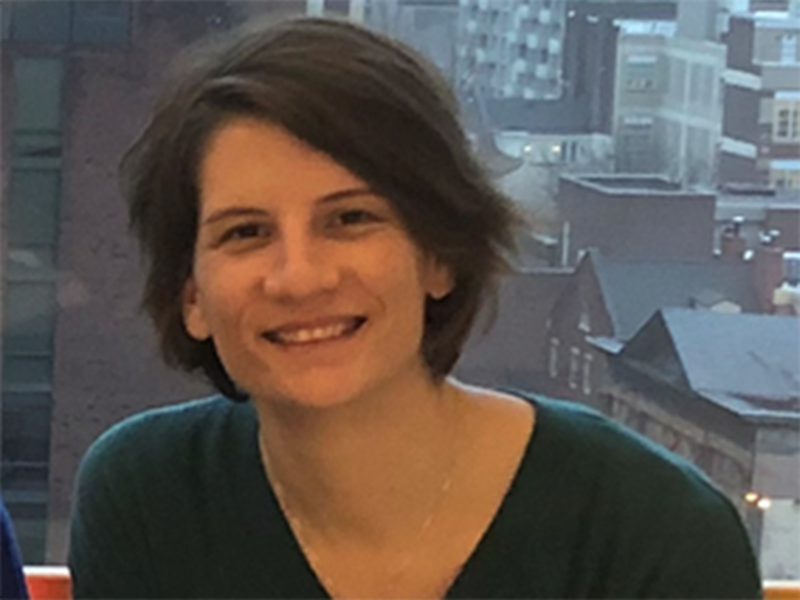
The Arkansas Integrative Metabolic Research Center will host Elise Fouquerel, assistant professor of pharmacology and chemical biology, from the University of Pittsburgh School of Medicine at 12:55 p.m. this Wednesday, Nov. 15, in Bell Engineering 2267. Fouquerel will discuss cellular mechanisms that lead to genomic instability, focusing on centromeres and telomeres.
Abstract: The Fouquerel lab research aims to understand the cellular mechanisms that lead to genomic instability, focusing on centromeres and telomeres, regions of the genome especially vulnerable to harmful environmental exposures. They have a particular focus on deciphering the roles of DNA repair enzymes PARPs in orchestrating the genome maintenance mechanisms when cells are exposed to oxidative stress. To do this, they have developed a chemoptogenetic tool based on the expression of a fluorescence-activated peptide (FAP) in fusion with a telomeric or a centromeric protein. The FAP binds a dye that can be excited by exposing the cells to far red light. The excitement of the dye leads to the local release of singlet oxygen molecules that oxidize the DNA. Using this tool, we show that chronic oxidative stress at telomeres leads to replication stress, subsequent telomere crisis, and overall genome instability. We also highlight the role of PARP2 in the occurrence of telomere fragility. Finally, acute local oxidative stress at centromeres triggers severe cell cycle arrest, double-strand breaks, and apoptosis.
Biography: Fouquerel is an assistant professor in the Department of Pharmacology and Chemical Biology at the University of Pittsburgh School of Medicine and UPMC since February 2022. She completed her Ph.D. at the University of Strasbourg in France where she studied the role of PARP enzymes in DNA repair and replication with Valerie Schreiber. She pursued postdoctoral training at the University of Pittsburgh with Robert W. Sobol, studying the impact of alkylating DNA damage-mediated PARP1 hyperactivation on cell metabolism. She then joined Patricia Opresko's lab where she focused on deciphering the mechanisms driving telomere dysfunction upon oxidative stress. In 2016, she received funding from NIEHS in the form of the K99/R00 Pathway to Independence Award which paved the way for her current research addressing the roles of PARP enzymes in the preservation of genome integrity. Elise became an Assistant Professor in December 2018 in the department of Biochemistry and Molecular Biology at Thomas Jefferson University and Sydney Kimmel Medical College. Her lab then moved to the University of Pittsburgh School of Medicine and Department of Pharmacology and Chemical Biology in February 2022.
For those unable to attend in person, this seminar will also be available via Zoom.
Topics
Contacts
Kimberley Fuller, managing director, AIMRC
Department of Biomedical Engineering
479-575-2333,